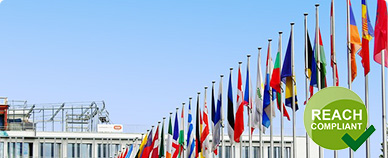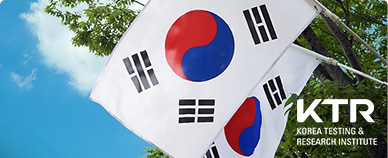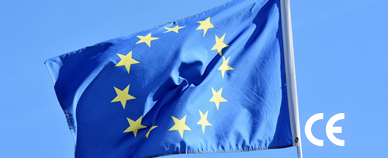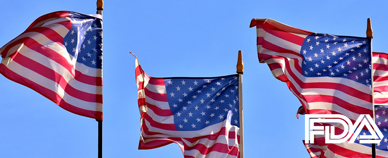The drug is FDA NDC registered
Legal overview
FDA (US Food and Drug Administration) is the highest drug regulatory agency in the United States, and drugs sold in the United States need to be registered and approved. Among them, the NDC (National Drug Code) is the national drug code, which is a way for FDA to uniquely identify drugs.
FDA NDC registration is a necessary statutory requirement and a prerequisite for drug products to enter the U.S. market. Only through the FDA NDC registration, the drug can be legally sold in the U.S. market. NDC code is an important identifier of drugs in the US market, which is of great significance to ensure the uniqueness and traceability of drugs.
Meaning of NDC code
The
NDC code is an 11-digit identifier assigned by the FDA to identify a drug product and its packaging. NDC stands for National DrugCode, “ National drug codes ” It was originally introduced by the FDA in 1969. The NDC code consists of three parts, which are the drug manufacturer, the description of the drug and the package, and the package specification and quantity.
The first five digits represent the identification number of the drug manufacturer or distributor, the middle four digits represent the description of the drug, and the last two digits represent the specification and quantity of the drug package. For example, a drug with an NDC code of 12345-678-90, where the first five digits represent the manufacturer's identification number, the middle four digits represent the drug description, and the last two digits represent the package specification and quantity.
NDC application scope
NDC codes are widely used in healthcare. Main applications include:
(1) Drug manufacturing and distribution: Drug manufacturers and distributors use NDC codes to identify and track the manufacturing and distribution of their drugs.
2, Drug management and inventory: Drug management companies and medical institutions use NDC codes to track drug inventory and supply to ensure drug availability and safety.
3, Medical insurance and drug payment: Medical insurance companies use NDC codes to determine drug payment and reimbursement amounts to support the administration and payment of medical insurance.
4. Drug Safety and supervision
NDC function
1, identify drugs
NDC code is the basis of drug identification. With NDC codes, healthcare professionals can quickly and accurately identify drugs, avoiding confusion and misuse due to similar drug names or similar drug packaging.
2, management drugs
The
NDC code provides the FDA with the ability to register and regulate drugs. Pharmaceutical companies must register their drugs with the FDA and submit their NDC codes to the FDA for approval. The FDA can also regulate the quality, safety, and efficacy of drugs based on the NDC code, ensuring that drugs comply with regulations and standards.
Materials and steps required for FDA NDC registration
1, application form: First of all, the applicant needs to fill in the application form provided by the FDA, including the basic information of the drug, manufacturer details, sales license and other content.
2, Drug labels and instructions: The applicant needs to provide the drug labels and instructions to ensure that it meets the requirements of the FDA. Labels and instructions should include the name, ingredients, use, dosage and other relevant information of the drug.
3. Production process: The applicant needs to provide a detailed description of the production process of the drug, including raw material procurement, production process, packaging and other links. This helps the FDA evaluate the quality and safety of the drug.
4. Specifications and performance test results of the drug: The applicant shall provide specifications and performance test results of the drug to ensure that the quality of the drug meets FDA requirements. These test results are usually verified by third-party laboratories.
5, Quality management system documents: The applicant needs to provide quality management system documents, including quality management manual, SOP (Standard operating procedures), etc. These documents can prove that the applicant has effectively managed the drug manufacturing process.
6, GMP certificate: The applicant needs to provide a certificate that meets the requirements of GMP (Good Manufacturing Practice). GMP is a standard regulation of the drug production process to ensure the quality and safety of drugs.
7. User Fees: The applicant is required to pay the user fees specified by the FDA, and the specific amount of the fees varies according to the different drug types.

Zhongbang is one of the earliest institutions in China to engage in compliance consulting services. It has a senior expert team composed of PhDs, Masters, and Bachelor's degrees, and has established branches in the UK, the United States, South Korea, Beijing, Shanghai, Suzhou, Fuzhou, Shenzhen, and other places, forming a global service network layout.
-
Strong technical strength:
A strong team composed of mid to senior technical personnel with professional backgrounds in chemistry, food nutrition and health, medicine, biology, toxicology, environment, and other fields
-
International service level:
A business elite team with multiple languages including English, Japanese, German, and Chinese, efficiently serving international customers
-
Rich compliance experience:
With years of experience in global product and regulatory research in multiple fields, we are able to provide comprehensive and high-level compliance consulting support to various customers
-
Localized service capabilities:
Having multiple branch offices in the UK, USA, South Korea, Beijing, Shanghai, Suzhou, Fuzhou, Shenzhen, etc., we can provide you with services nearby
Service Hotline :400-115-9001
Zhongbang Consulting (Shandong Zhongbang North Management Consulting Co., Ltd.) focuses on product registration and compliance consulting services. With its professional technology, diverse resources, and global network, we are committed to providing regulatory consulting and environmental regulation response services for pharmaceutical, chemical, consumer goods production enterprises, and large multinational corporations. To solve the environmental, health and safety laws and regulations, product quality standards, and other issues faced by enterprises in production, sales, and global trade processes.
Accumulated Customers
18,000+
Distributed in 35 countries and regions
14year
Industry experience
260+
Senior expert team
15+
Subsidiaries
300+
Collaboration Cases
Brand Cases
The choices and trust of over 18000 customers are the driving force for Zhongbang to continuously improve its services. We are willing to grow together with these excellent enterprises
Service Hotline:400-115-9001






































































 Consultation
Consultation
 400-115-9001
400-115-9001